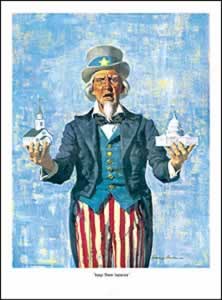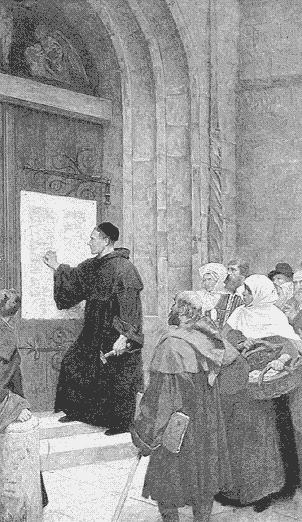(Excerpts) The past two years have been difficult for the Religious Right. President Barack Obama opposes the agenda of the religious-political movement, and congressional leaders have generally turned a deaf ear. Some commentators even pronounced the Religious Right dead.
But claims of the Religious Right’s demise are often premature. Like Frankenstein’s monster, the Religious Right has proven hard to kill.
Religious Right groups are waging a massive under-the-radar campaign this fall to register church-going voters, drive congregants to the polls and elect favored candidates. These organizations believe their allies in the Republican Party are poised to make significant advances, and they want to make sure that one or both houses of Congress move to GOP control. [At the source of this article, see a list of events scheduled for November].
Why so many events and projects that feature voter mobilization or other activities tied to electoral politics?
The Religious Right’s fortunes are closely tied to the Republican Party’s. When the GOP lost power in Washington in 2006 and 2008, the Religious Right also took a hit. Its legislative proposals have stalled, and it finds itself unable to counter legislation, court appointments and other actions it opposes.
Eager to regain power in the nation’s capital (and in state legislatures), the Religious Right is going all out to do whatever it can to help its political allies get elected to public office.
Voter registration, mobilization and get-out-the-vote efforts are key to the effort. Polls show that regular churchgoers are much more likely to vote Republican. In addition, a recent poll conducted by the Pew Forum found that 74 percent of evangelicals say they are likely to vote in 2010. Religious Right groups are eager to keep this segment of the GOP fired up until Nov. 2. A steady string of conferences, voter registration events, voter-guide distribution and other activities will help.
What About The Tea Party?
Some political analysts have speculated that the Religious Right has been overshadowed by the Tea Party movement.
This is an oversimplification. The Tea Party remains a wild card, but there’s no reason why this movement cannot exist alongside or in tandem with the Religious Right. Although they don’t see eye to eye on every issue, the Religious Right and the Tea Party share the same goal: drastically changing the political calculus in Washington.
It is true that the Tea Party – a loosely structured conglomeration of anti-government activists – remains divided over social issues. Some activists want to incorporate these issues into the movement, while others want to keep the focus on matters like low taxes and deregulation. Because the Tea Party is decentralized, there is no reason why the factions that favor adding social issues to the plate can’t pursue that goal and work with the Religious Right.
Religious Right organizations are working to woo the Tea Party – or create their own version of it. The Family Research Council held a special session for Tea Party activists last year and plans to do so again during this year’s “Values Voter Summit.” In a recent e-mail message promoting the event, FRC President Tony Perkins noted that U.S. Sen. Jim DeMint, “a Tea Party favorite,” will be among the speakers.
Some right-wing figures, notably Sarah Palin, straddle both camps and may serve as a bridge between the two. But in the end, it almost doesn’t matter if the two arms formally cooperate or not. Their goal is the same: elect as many ultra-conservatives to public office as possible. They can work together on this or do it on parallel tracks.
Another example of cross-pollination between the two camps is Glenn Beck. Beck, the bombastic Fox News Channel host, held rallies at the Kennedy Center and the Lincoln Memorial in Washington, D.C., Aug. 27 and 28. Although Beck is a Mormon, he often features “Christian nation” rhetoric on his program, and his events took on the trappings of a religious revival. Among the speakers was David Barton, a Texas Religious Right activist (and former GOP state official) who insists that church-state separation is a myth.
Polls show that many voters are unhappy over the state of the economy and high unemployment. If this sentiment creates a political shift that elects more Tea Party-friendly candidates, it’s inevitable that some of those elected will also have a far-right social-issues agenda. In this sense, the Religious Right gets a free ride for its issues. Americans United

















0 comments:
Post a Comment